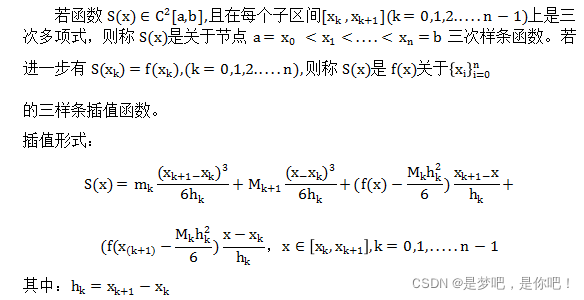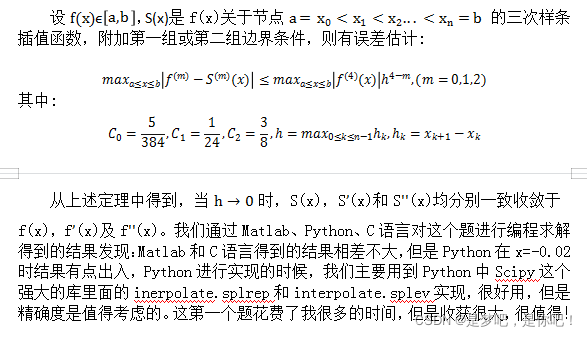- 冒泡、选择、插入排序:三大基础排序算法深度解析(C语言实现)
xienda
算法排序算法数据结构
在算法学习道路上,排序算法是每位程序员必须掌握的基石。本文将深入解析冒泡排序、选择排序和插入排序这三种基础排序算法,通过C语言代码实现和对比分析,帮助读者彻底理解它们的差异与应用场景。算法原理与代码实现1.冒泡排序(BubbleSort)工作原理:通过重复比较相邻元素,将较大元素逐步"冒泡"到数组末尾。voidbubbleSort(intarr[],intn){ for(inti=0;iarr[
- Java大厂面试实录:谢飞机的电商场景技术问答(Spring Cloud、MyBatis、Redis、Kafka、AI等)
Java大厂面试实录:谢飞机的电商场景技术问答(SpringCloud、MyBatis、Redis、Kafka、AI等)本文模拟知名互联网大厂Java后端岗位面试流程,以电商业务为主线,由严肃面试官与“水货”程序员谢飞机展开有趣的对话,涵盖SpringCloud、MyBatis、Redis、Kafka、SpringSecurity、AI等热门技术栈,并附详细解析,助力求职者备战大厂面试。故事设定谢
- OpenWebUI(12)源码学习-后端constants.py常量定义文件
青苔猿猿
AI大模型openwebuiconstants常量定义
目录文件名:`constants.py`功能概述:主要功能点详解1.**MESSAGES枚举类**2.**WEBHOOK_MESSAGES枚举类**3.**ERROR_MESSAGES枚举类**✅默认错误模板✅认证与用户相关错误✅资源冲突与重复错误✅验证失败类错误✅权限限制类错误✅文件上传与格式错误✅模型与API错误✅请求频率与安全限制✅数据库与配置错误4.**TASKS枚举类**✅总结实际应用场
- 《Java前端开发全栈指南:从Servlet到现代框架实战》
前言在当今Web开发领域,Java依然是后端开发的主力语言,而随着前后端分离架构的普及,Java开发者也需要掌握前端技术栈。本文将全面介绍JavaWeb前端开发的核心技术,包括传统Servlet/JSP体系、现代前端框架集成方案,以及全栈开发的最佳实践。通过本文,您将了解如何构建现代化的JavaWeb应用前端界面。一、JavaWeb前端技术演进1.1传统技术栈Servlet:JavaWeb基础,处
- 2025年渗透测试面试题总结-2025年HW(护网面试) 43(题目+回答)
独行soc
2025年护网面试职场和发展linux科技渗透测试安全护网
安全领域各种资源,学习文档,以及工具分享、前沿信息分享、POC、EXP分享。不定期分享各种好玩的项目及好用的工具,欢迎关注。目录2025年HW(护网面试)431.自我介绍与职业规划2.Webshell源码级检测方案3.2025年新型Web漏洞TOP54.渗透中的高价值攻击点5.智能Fuzz平台架构设计6.堆栈溢出攻防演进7.插桩技术实战应用8.二进制安全能力矩阵9.C语言内存管理精要10.Pyth
- 【个人笔记】负载均衡
撰卢
笔记负载均衡运维
文章目录nginx反向代理的好处负载均衡负载均很的配置方式均衡负载的方式nginx反向代理的好处提高访问速度进行负载均衡保证后端服务安全负载均衡负载均衡,就是把大量的请求按照我们指定的方式均衡的分配给集群中的每台服务器负载均很的配置方式upstreamwebservers{server192.168.100.128:8080server192.168.100.129:8080}server{lis
- 《Python星球日记》第35天:全栈开发(综合项目)
Code_流苏
Python星球日记编程项目实战Python全栈开发DjangoFlask后端开发博客系统
名人说:路漫漫其修远兮,吾将上下而求索。——屈原《离骚》创作者:Code_流苏(CSDN)(一个喜欢古诗词和编程的Coder)专栏:《Python星球日记》,限时特价订阅中ing目录一、全栈开发概述1.全栈开发的优势2.全栈开发技能组合二、博客系统项目需求分析1.功能需求2.技术栈选择3.项目结构规划三、数据库设计1.实体关系分析2.Django模型设计四、后端开发1.Django项目创建2.视图
- Spring 声明式事务:从原理到实现的完整解析
Code季风
Spring详解spring数据库后端开发语言javaspringboot
在后端开发中,事务管理是保证数据一致性的核心机制。尤其是在复杂业务场景下,一个操作可能涉及多步数据库操作,任何一步失败都需要回滚到初始状态。Spring的声明式事务通过AOP思想,将事务管理从业务逻辑中剥离,让开发者更专注于核心业务。本文将结合实际实现,详解声明式事务的核心机制和设计思路。一、为什么需要声明式事务?在讨论实现之前,我们先明确一个问题:为什么要用声明式事务,而不是手动编写事务代码?假
- Ubuntu 服务器虚拟主机,ubuntu云服务器虚拟机
Gamer42
Ubuntu服务器虚拟主机
ubuntu云服务器虚拟机内容精选换一换通过云服务器或者外部镜像文件创建私有镜像时,如果云服务器或镜像文件所在虚拟机的网络配置是静态IP地址时,您需要修改网卡属性为DHCP,以使私有镜像发放的新云服务器可以动态获取IP地址。本节以WindowsServer2008R2操作系统为例。其他操作系统配置方法略有区别,请参考对应操作系统的相关资料进行操作,文档中不对此进行详细说明后端虚拟机绑定EIP。登录
- C++中NULL等于啥
奇妙之二进制
嵌入式/Linux#C++编程法则c++开发语言
文章目录**一、`NULL`的标准定义****二、常见实现方式**1.**定义为整数`0`**2.**定义为`0L`或`(void*)0`**(较少见)**三、与C语言的关键区别****四、`NULL`在C++中的问题**1.**重载函数匹配歧义**2.**模板参数推导错误****五、C++11+的替代方案:`nullptr`****六、最佳实践****七、总结**在C++中,NULL的定义与行为
- C语言手写一个简易 DNS 客户端
(Charon)
服务器linux网络
本文聚焦讲解如何通过C语言构造并发送一个最小化的DNS请求,特别以dns_client_commit()函数为主线,带你一步步理解DNS请求的构造过程。为什么要学习DNS报文构造?我们平时在浏览器里输入一个网址(比如www.baidu.com),浏览器其实背后会通过操作系统的DNS模块发送一个查询请求,将域名解析为IP地址。而如果我们手动用C语言自己构造DNS请求,我们可以更深刻地理解底层网络通信
- C语言手写简易 DNS 客户端(接收部分)
(Charon)
c语言开发语言
本文通过纯C语言手动构造DNS请求报文,使用UDP协议发送到公共DNS服务器,并接收响应,完整演示DNS请求流程。主流程:dns_client_commit()这是整个流程的核心函数,下面我们按顺序拆解每一步的逻辑,尤其突出发送sendto与接收recvfrom的设计思路和实现。第一步:创建UDP套接字intsockfd=socket(AF_INET,SOCK_DGRAM,0);if(sockfd
- 【C语言网络编程】HTTP 客户端请求(域名解析过程)
在做C语言网络编程或模拟HTTP客户端时,第一步就离不开“把域名解析为IP地址”这一步。很多人可能直接复制粘贴一段gethostbyname的代码,但未必真正理解它的原理。本篇博客将围绕一个经典函数:char*host_to_ip(constchar*hostname)深入剖析DNS解析过程、IP地址转换机制,并进一步带你了解HTTP请求是如何基于TCP通信进行的。一、核心函数:host_to_i
- GPT实操——利用GPT创建一个应用
狗木马
深度学习gpt-3gpt
功能描述信息查询:用户可以询问各种问题,如天气、新闻、股票等,机器人会返回相关信息。任务执行:用户可以要求机器人执行一些简单的任务,如设置提醒、发送邮件等。情感支持:机器人可以与用户进行情感交流,提供安慰和支持。个性化设置:用户可以自定义机器人的回复风格和偏好。技术栈前端:React.js后端:Node.js+Express数据库:MongoDB自然语言处理:OpenAIGPT-3API其他工具:
- 前端面试题——5.AjAX的缺点?
浅端
前端面试题前端面试题
①传统的web交互是:用户一个网页动作,就会发送一个http请求到服务器,服务器处理完该请求再返回一个完整的HTML页面,客户端再重新加载,这样极大地浪费了带宽。②AJAX的出现解决了这个问题,它只会向服务器请求用户所需要的数据,并在客户端采用JavaScript处理返回的数据,操作DOM更新页面。③AJXA优点:无刷新更新页面异步服务器通信前端后端负载均衡④AJAX缺点:干掉了Back和Hist
- 什么是ORM?它如何简化后端开发?
破碎的天堂鸟
学习教程数据库
什么是ORM?ORM(对象关系映射,Object-RelationalMapping)是一种编程技术,用于解决面向对象编程语言与关系型数据库之间的数据转换问题。其核心是将数据库中的表结构映射为程序中的类和对象,使开发者能够以操作对象的方式操作数据库,而非直接编写SQL语句。具体而言:映射机制:数据库表→编程语言中的类(如User类对应users表)表字段→类的属性(如username字段对应Use
- 【前端】异步任务风控验证与轮询机制技术方案(通用笔记版)
一、背景场景在某类生成任务中,例如用户点击“执行任务”按钮后触发一个较耗时的后端操作(如生成报告、渲染图像、转码视频等),由于其调用了模型、渲染服务或需要较长处理时间,为了防止接口被频繁恶意调用,系统需要加入风控验证机制。此外,因任务处理为异步,前端无法立即获得最终结果,因此需通过轮询方式定期查询任务状态,等待任务完成后展示结果。二、整体流程说明1.用户点击“执行任务”按钮:前端调用风控接口/ap
- uniapp对接unipush 1.0 ios/android
车轮滚滚__
uni-appiosandroid
配置注意需要打包自定义基座之后在手机上运行自定义基座才可以!官方有文档可以根据文档来我这里用的是1.0为什么没有2.0因为2.0要用uinicloud注意每次打包之后cid都会变cid用户的标识iduniapp通过这个id可以把消息推送给指定人前端代码前端要做的很简单直接放到app.vue中onLaunch钩子中即可麻烦的在后端和个推的对接onPushMessage(that){//#ifdefA
- MyBatis-Plus的LambdaQuery用法
核心概括:LambdaQueryWrapper本质上是一个条件包装器(与wrapper类似),而Mapper方法(如selectList)负责补充完整的SQL结构在Java后端开发中(特别是使用MyBatis-Plus框架时),LambdaQuery()是一种基于Lambda表达式的类型安全查询方式,它利用Java8的Lambda特性,避免了硬编码字段名,提升了代码可读性和可维护性。核心优势类型安
- c语言printf啥意思,printf在c语言中的意思是什么呢
在C语言中printf()是专门用于输出的2113语句。5261用法如下:1、printf()函数是格式化输出4102函数,一般用于向标准输出设备按1653规定格式输出信息。2、printf()函数的调用格式为:printf("",)。3、格式输出,它是c语言中产生格式化输出的函数(在stdio.h中定义)。用于向终端(显示器,控制台等)输出字符。c语言中scanf()是专门输入的语句。用法如下:
- Redis简介之它是啥
财神爷首席大弟子
Redisredis数据库缓存
什么是RedisRedis是一个基于BSD协议的开源数据库,是一个以键值对形式的存储系统Redis常用于消息队列,缓存,会话存储等场景Redis是使用C语言编写使用许可证:BSD许可证是一个开源的宽松的软件许可协议Redis优点性能极高Redis是以高性能著称,可全天24小时达到每秒十万次的读写操作数据类型丰富哈希字符串集合列表有序集合原子性操作原子性操作是指,程序要么不执行,要嘛执行完毕,这种对
- 如何做到无感刷新token?
如何做到无感刷新token?前言后端刷新Token方案--自动刷新token前端刷新Token方案--token续约疑问及思考前言解决方案:自动刷新tokentoken续约思路如果Token即将过期,你在验证用户权限的同时,为用户生成一个新的Token并返回给客户端,客户端需要更新本地存储的Token,还可以做定时任务来刷新Token,可以不生成新的Token,在快过期的时候,直接给Token增加
- uniapp登录成功后跳回原有页面+无感刷新token
黑匣子~
uniappuni-apptoken
uniapp登录成功后跳回原有页面引言在C端的页面场景中,我们经常会有几种情况到登录页:区分需要登录和不用登录的页面,点击需要登录才能查看的页面已经登录但是超时,用户凭证失效等原因以上情况可以细分为两种,一种是从未登录过的,需要第一次去登录,还一种是已经登录了,但是cookie失效了,需要重新获取用户凭证,这样的话后端会将两个状态码区分,那我们前端需要根据不同的状态码进行相应的处理。第一次登录时当
- C语言学生成绩管理系统<;自创>;(功能7有小错误,但可运行)
han_xue_feng
java
腾讯云加速企业和个人开发创新公开直播预告直播预告:07/18(周四)15:00-16:00随着人工智能与大模型的蓬勃发展,我们正步入一个由技微信实习第一天周五入职,早上早早来到了公司,发现好多人都没上班,到十点才陆陆续续有人来,办理完入职后,mentor中联夏令营遗憾没有入选不过hr的回复真的很好,辛苦啦#提前批简历挂麻了怎么办##机械制造投递记录#大数据开发的工作有点过于简单了吧sq大数据开发的
- 【C语言经典面试题】memcpy函数有没有更高效的拷贝实现方法?
架构师李肯
嵌入式物联网开发进阶c语言面试性能优化
【C语言经典面试题】memcpy函数有没有更高效的拷贝实现方法?我相信大部分初中级C程序员在面试的过程中,可能都被问过关于memcpy函数的问题,甚至需要手撕memcpy。本文从另一个角度带你领悟一下memcpy的面试题,你可以看看是否能接得住?文章目录1写在前面2源码实现2.1函数申明2.2简单的功能实现2.3满足大数据量拷贝的功能实现3源码测试4小小总结5更多分享1写在前面假如你遇到下面的面试
- 全网最全100道C语言高频经典面试题及答案解析:C语言程序员面试题库分类总结
猿享天开
学懂C语言-C语言从入门到精通c语言c++面试
前言在计算科学领域,C语言犹如一座横跨硬件与软件的桥梁——其简洁的语法背后,承载着操作系统、数据库、嵌入式系统等基础软件的运行命脉。当开发者面对大厂面试中"用户态与内核态切换的开销量化"或"自旋锁在NUMA架构下的性能陷阱"等深度问题时,仅凭教科书知识往往难以应对。本文正是为解决这一痛点而生。我们摒弃传统面试题集的简单罗列模式,精选100个直指系统编程本质的问题,每个案例均包含:工业级场景还原:基
- C语言均方根法计算交流电压有效值
whik1194
c语言开发语言FPGAHLS
#include"stdio.h"#include"stdlib.h"#include"stdint.h"#include"string.h"#include"math.h"//#defineSAMPLE1000#definePIacos(-1)intmain(intargc,char*argv[]){floatsum=0;floatrms=0;intSAMPLE=atoi(argv[1]);if
- Synopsys 逻辑综合之 MultiBit Flip-Flop 与 ICG
目录一、普通寄存器(1-bitFlip-Flop)二、Multi-BitFlip-Flop是什么?所以Multi-BitFF的做法就是:三、为什么要用Multi-BitFF?1.降低功耗2.减小芯片面积3.布局优化更容易(PhysicalAware)四、在SynopsysDesignCompiler中怎么支持?1.启用Multi-BitFlip-Flop功能:2.与ICG协同优化:3.后端ECO友
- 初学者的指针学习笔记(1)
近津薪荼
学习笔记
1.内存和地址1.1内存像学生宿舍一样,被分成许多个房间,每个房间都有自己的房号,每个房间能住8个学生内存被分成许多个单元(小为1Byte),每个单元都有自己的编号,每个单元里能住8个小比特(bite)c语言中,指针就是该单元内存的编号也就是地址,我们可以通过指针快速找到我们要访问的内存1.2编址计算机中的内存编址,是通过硬件设计来完成的,也就是说他被做出来的时候各个内存单元的地址就已经确定了。计
- Spring MVC
bjun2012
spring
1.关于SpringMVCSpringMVC是基础spring框架基础之上,主要解决了后端服务器接收客户端提交的请求,并给予响应的相关问题.MVC=Model+View+ControllerModel:数据模型,通常由业务逻辑层(ServiceLayer)和数据访问层(DataAccessObjectLayer)构成View:视图Controller:控制器MVC只关心V-C之间的交互2.创建Sp
- TOMCAT在POST方法提交参数丢失问题
357029540
javatomcatjsp
摘自http://my.oschina.net/luckyi/blog/213209
昨天在解决一个BUG时发现一个奇怪的问题,一个AJAX提交数据在之前都是木有问题的,突然提交出错影响其他处理流程。
检查时发现页面处理数据较多,起初以为是提交顺序不正确修改后发现不是由此问题引起。于是删除掉一部分数据进行提交,较少数据能够提交成功。
恢复较多数据后跟踪提交FORM DATA ,发现数
- 在MyEclipse中增加JSP模板 删除-2008-08-18
ljy325
jspxmlMyEclipse
在D:\Program Files\MyEclipse 6.0\myeclipse\eclipse\plugins\com.genuitec.eclipse.wizards_6.0.1.zmyeclipse601200710\templates\jsp 目录下找到Jsp.vtl,复制一份,重命名为jsp2.vtl,然后把里面的内容修改为自己想要的格式,保存。
然后在 D:\Progr
- JavaScript常用验证脚本总结
eksliang
JavaScriptjavaScript表单验证
转载请出自出处:http://eksliang.iteye.com/blog/2098985
下面这些验证脚本,是我在这几年开发中的总结,今天把他放出来,也算是一种分享吧,现在在我的项目中也在用!包括日期验证、比较,非空验证、身份证验证、数值验证、Email验证、电话验证等等...!
&nb
- 微软BI(4)
18289753290
微软BI SSIS
1)
Q:查看ssis里面某个控件输出的结果:
A MessageBox.Show(Dts.Variables["v_lastTimestamp"].Value.ToString());
这是我们在包里面定义的变量
2):在关联目的端表的时候如果是一对多的关系,一定要选择唯一的那个键作为关联字段。
3)
Q:ssis里面如果将多个数据源的数据插入目的端一
- 定时对大数据量的表进行分表对数据备份
酷的飞上天空
大数据量
工作中遇到数据库中一个表的数据量比较大,属于日志表。正常情况下是不会有查询操作的,但如果不进行分表数据太多,执行一条简单sql语句要等好几分钟。。
分表工具:linux的shell + mysql自身提供的管理命令
原理:使用一个和原表数据结构一样的表,替换原表。
linux shell内容如下:
=======================开始
- 本质的描述与因材施教
永夜-极光
感想随笔
不管碰到什么事,我都下意识的想去探索本质,找寻一个最形象的描述方式。
我坚信,世界上对一件事物的描述和解释,肯定有一种最形象,最贴近本质,最容易让人理解
&
- 很迷茫。。。
随便小屋
随笔
小弟我今年研一,也是从事的咱们现在最流行的专业(计算机)。本科三流学校,为了能有个更好的跳板,进入了考研大军,非常有幸能进入研究生的行业(具体学校就不说了,怕把学校的名誉给损了)。
先说一下自身的条件,本科专业软件工程。主要学习就是软件开发,几乎和计算机没有什么区别。因为学校本身三流,也就是让老师带着学生学点东西,然后让学生毕业就行了。对专业性的东西了解的非常浅。就那学的语言来说
- 23种设计模式的意图和适用范围
aijuans
设计模式
Factory Method 意图 定义一个用于创建对象的接口,让子类决定实例化哪一个类。Factory Method 使一个类的实例化延迟到其子类。 适用性 当一个类不知道它所必须创建的对象的类的时候。 当一个类希望由它的子类来指定它所创建的对象的时候。 当类将创建对象的职责委托给多个帮助子类中的某一个,并且你希望将哪一个帮助子类是代理者这一信息局部化的时候。
Abstr
- Java中的synchronized和volatile
aoyouzi
javavolatilesynchronized
说到Java的线程同步问题肯定要说到两个关键字synchronized和volatile。说到这两个关键字,又要说道JVM的内存模型。JVM里内存分为main memory和working memory。 Main memory是所有线程共享的,working memory则是线程的工作内存,它保存有部分main memory变量的拷贝,对这些变量的更新直接发生在working memo
- js数组的操作和this关键字
百合不是茶
js数组操作this关键字
js数组的操作;
一:数组的创建:
1、数组的创建
var array = new Array(); //创建一个数组
var array = new Array([size]); //创建一个数组并指定长度,注意不是上限,是长度
var arrayObj = new Array([element0[, element1[, ...[, elementN]]]
- 别人的阿里面试感悟
bijian1013
面试分享工作感悟阿里面试
原文如下:http://greemranqq.iteye.com/blog/2007170
一直做企业系统,虽然也自己一直学习技术,但是感觉还是有所欠缺,准备花几个月的时间,把互联网的东西,以及一些基础更加的深入透析,结果这次比较意外,有点突然,下面分享一下感受吧!
&nb
- 淘宝的测试框架Itest
Bill_chen
springmaven框架单元测试JUnit
Itest测试框架是TaoBao测试部门开发的一套单元测试框架,以Junit4为核心,
集合DbUnit、Unitils等主流测试框架,应该算是比较好用的了。
近期项目中用了下,有关itest的具体使用如下:
1.在Maven中引入itest框架:
<dependency>
<groupId>com.taobao.test</groupId&g
- 【Java多线程二】多路条件解决生产者消费者问题
bit1129
java多线程
package com.tom;
import java.util.LinkedList;
import java.util.Queue;
import java.util.concurrent.ThreadLocalRandom;
import java.util.concurrent.locks.Condition;
import java.util.concurrent.loc
- 汉字转拼音pinyin4j
白糖_
pinyin4j
以前在项目中遇到汉字转拼音的情况,于是在网上找到了pinyin4j这个工具包,非常有用,别的不说了,直接下代码:
import java.util.HashSet;
import java.util.Set;
import net.sourceforge.pinyin4j.PinyinHelper;
import net.sourceforge.pinyin
- org.hibernate.TransactionException: JDBC begin failed解决方案
bozch
ssh数据库异常DBCP
org.hibernate.TransactionException: JDBC begin failed: at org.hibernate.transaction.JDBCTransaction.begin(JDBCTransaction.java:68) at org.hibernate.impl.SessionImp
- java-并查集(Disjoint-set)-将多个集合合并成没有交集的集合
bylijinnan
java
import java.util.ArrayList;
import java.util.Arrays;
import java.util.HashMap;
import java.util.HashSet;
import java.util.Iterator;
import java.util.List;
import java.util.Map;
import java.ut
- Java PrintWriter打印乱码
chenbowen00
java
一个小程序读写文件,发现PrintWriter输出后文件存在乱码,解决办法主要统一输入输出流编码格式。
读文件:
BufferedReader
从字符输入流中读取文本,缓冲各个字符,从而提供字符、数组和行的高效读取。
可以指定缓冲区的大小,或者可使用默认的大小。大多数情况下,默认值就足够大了。
通常,Reader 所作的每个读取请求都会导致对基础字符或字节流进行相应的读取请求。因
- [天气与气候]极端气候环境
comsci
环境
如果空间环境出现异变...外星文明并未出现,而只是用某种气象武器对地球的气候系统进行攻击,并挑唆地球国家间的战争,经过一段时间的准备...最大限度的削弱地球文明的整体力量,然后再进行入侵......
那么地球上的国家应该做什么样的防备工作呢?
&n
- oracle order by与union一起使用的用法
daizj
UNIONoracleorder by
当使用union操作时,排序语句必须放在最后面才正确,如下:
只能在union的最后一个子查询中使用order by,而这个order by是针对整个unioning后的结果集的。So:
如果unoin的几个子查询列名不同,如
Sql代码
select supplier_id, supplier_name
from suppliers
UNI
- zeus持久层读写分离单元测试
deng520159
单元测试
本文是zeus读写分离单元测试,距离分库分表,只有一步了.上代码:
1.ZeusMasterSlaveTest.java
package com.dengliang.zeus.webdemo.test;
import java.util.ArrayList;
import java.util.List;
import org.junit.Assert;
import org.j
- Yii 截取字符串(UTF-8) 使用组件
dcj3sjt126com
yii
1.将Helper.php放进protected\components文件夹下。
2.调用方法:
Helper::truncate_utf8_string($content,20,false); //不显示省略号 Helper::truncate_utf8_string($content,20); //显示省略号
&n
- 安装memcache及php扩展
dcj3sjt126com
PHP
安装memcache tar zxvf memcache-2.2.5.tgz cd memcache-2.2.5/ /usr/local/php/bin/phpize (?) ./configure --with-php-confi
- JsonObject 处理日期
feifeilinlin521
javajsonJsonOjbectJsonArrayJSONException
写这边文章的初衷就是遇到了json在转换日期格式出现了异常 net.sf.json.JSONException: java.lang.reflect.InvocationTargetException 原因是当你用Map接收数据库返回了java.sql.Date 日期的数据进行json转换出的问题话不多说 直接上代码
&n
- Ehcache(06)——监听器
234390216
监听器listenerehcache
监听器
Ehcache中监听器有两种,监听CacheManager的CacheManagerEventListener和监听Cache的CacheEventListener。在Ehcache中,Listener是通过对应的监听器工厂来生产和发生作用的。下面我们将来介绍一下这两种类型的监听器。
- activiti 自带设计器中chrome 34版本不能打开bug的解决
jackyrong
Activiti
在acitivti modeler中,如果是chrome 34,则不能打开该设计器,其他浏览器可以,
经证实为bug,参考
http://forums.activiti.org/content/activiti-modeler-doesnt-work-chrome-v34
修改为,找到
oryx.debug.js
在最头部增加
if (!Document.
- 微信收货地址共享接口-终极解决
laotu5i0
微信开发
最近要接入微信的收货地址共享接口,总是不成功,折腾了好几天,实在没办法网上搜到的帖子也是骂声一片。我把我碰到并解决问题的过程分享出来,希望能给微信的接口文档起到一个辅助作用,让后面进来的开发者能快速的接入,而不需要像我们一样苦逼的浪费好几天,甚至一周的青春。各种羞辱、谩骂的话就不说了,本人还算文明。
如果你能搜到本贴,说明你已经碰到了各种 ed
- 关于人才
netkiller.github.com
工作面试招聘netkiller人才
关于人才
每个月我都会接到许多猎头的电话,有些猎头比较专业,但绝大多数在我看来与猎头二字还是有很大差距的。 与猎头接触多了,自然也了解了他们的工作,包括操作手法,总体上国内的猎头行业还处在初级阶段。
总结就是“盲目推荐,以量取胜”。
目前现状
许多从事人力资源工作的人,根本不懂得怎么找人才。处在人才找不到企业,企业找不到人才的尴尬处境。
企业招聘,通常是需要用人的部门提出招聘条件,由人
- 搭建 CentOS 6 服务器 - 目录
rensanning
centos
(1) 安装CentOS
ISO(desktop/minimal)、Cloud(AWS/阿里云)、Virtualization(VMWare、VirtualBox)
详细内容
(2) Linux常用命令
cd、ls、rm、chmod......
详细内容
(3) 初始环境设置
用户管理、网络设置、安全设置......
详细内容
(4) 常驻服务Daemon
- 【求助】mongoDB无法更新主键
toknowme
mongodb
Query query = new Query(); query.addCriteria(new Criteria("_id").is(o.getId())); &n
- jquery 页面滚动到底部自动加载插件集合
xp9802
jquery
很多社交网站都使用无限滚动的翻页技术来提高用户体验,当你页面滑到列表底部时候无需点击就自动加载更多的内容。下面为你推荐 10 个 jQuery 的无限滚动的插件:
1. jQuery ScrollPagination
jQuery ScrollPagination plugin 是一个 jQuery 实现的支持无限滚动加载数据的插件。
2. jQuery Screw
S



